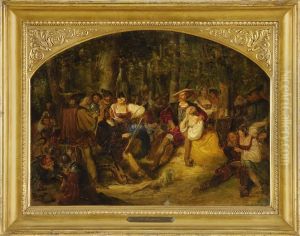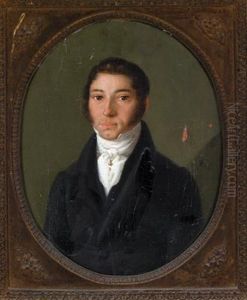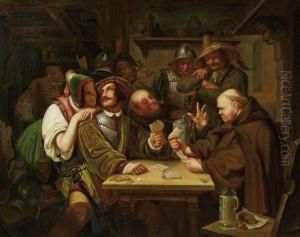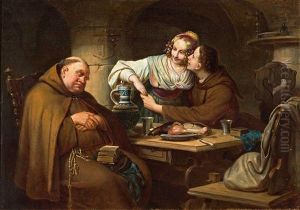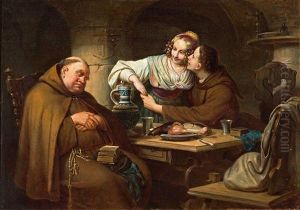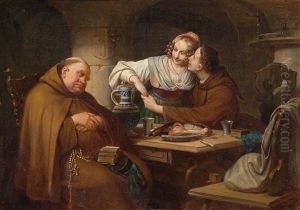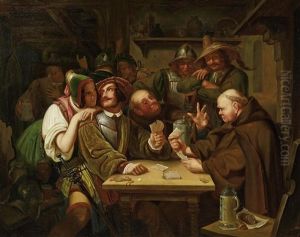Carl Schorn Paintings
Carl Schorn, a German artist, was born in 1820 in the town of Düsseldorf, which was then part of the Kingdom of Prussia. He is not widely known in the annals of art history, and as such, there is limited information on his life and artistic career. However, Düsseldorf in the 19th century was a significant center for art and culture in Germany, particularly known for the Düsseldorf School of Painting, which focused on detailed landscape painting and historical subjects.
Schorn's work as an artist would have been influenced by the artistic movements of the time, including Romanticism, which was prevalent in Germany during the early to mid-19th century. Romantic artists emphasized emotion, nature, and nationalism, which may have been reflected in Schorn's work. The Düsseldorf School itself, established at the Düsseldorf Academy of Arts, was known for its rigorous training and emphasis on draughtsmanship and painting techniques.
Despite the lack of extensive records on Carl Schorn's life and oeuvre, it is likely that he participated in the artistic milieu of his time, potentially exhibiting his work in salons and exhibitions. The latter half of the 19th century also saw the rise of new art movements such as Impressionism, which challenged the traditional styles and techniques that artists like Schorn would have been trained in.
Carl Schorn passed away in 1903. Due to the scarcity of information, his body of work remains relatively obscure, and his impact on art history is not as prominent as that of his contemporaries. Nevertheless, every artist contributes to the tapestry of art history, and Schorn's work, preserved in private collections or perhaps in regional museums, would offer insights into the period's artistic landscape and the local expressions of larger artistic trends.
